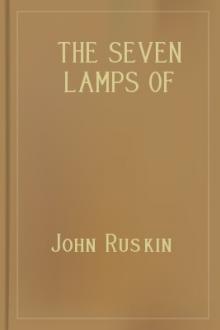Books author - "John Ruskin"

z, as he walked in, throwing his umbrella in Gluck's face."Aye! what for, indeed, you little vagabond?" said Hans, administering an educational box on the ear as he followed his brother into the kitchen. "Bless my soul!" said Schwartz when he opened the door. "Amen," said the little gentleman, who had taken his cap off and was standing in the middle of the kitchen, bowing with the utmost possible velocity. "Who's that?" said Schwartz, catching up a

ling-pin no sooner touched the cap, than it flew out of Schwartz's hand, spinning like a straw in a high wind, and fell into the corner at the further end of the room."Who are you, sir?" demanded Schwartz, turning upon him. "What's your business?" snarled Hans. "I'm a poor old man, sir," the little gentleman began very modestly, "and I saw your fire through the window, and begged shelter for a quarter of an hour." "Have the goodness to walk out

company as believing in an Eternal life, and endeavour to draw any conclusions, from this assumed belief, as to their present business, they will forthwith tell you that what you say is very beautiful, but it is not practical. If, on the contrary, you frankly address them as unbelievers in Eternal life, and try to draw any consequences from that unbelief,--they immediately hold you for an accursed person, and shake off the dust from their feet at you. And the more I thought over what I had got

pretended that all, or even the greater number of, the principles necessary to the well-being of the art, are included in the inquiry. Many, however, of considerable importance will be found to develope themselves incidentally from those more specially brought forward.Graver apology is necessary for an apparently graver fault. It has been just said, that there is no branch of human work whose constant laws have not close analogy with those which govern every other mode of man's exertion. But,

is because the finest natures remain young to the death: and for you the first thing you have to do in art (as in life) is to be quiet and firm--quiet, above everything; and modest, with this most essential modesty, that you must like the landscape you are going to draw better than you expect to like your drawing of it, however well it may succeed. If you would not rather have the real thing than your sketch of it, you are not in a right state of mind for sketching at all. If you only think of

s are indispensable, and I am not without hope that the sense of secure advancement, and the pleasure of independent effort, may render the following out of even the more tedious exercises here proposed, possible to the solitary learner, without weariness. But if it should be otherwise, and he finds the first steps painfully irksome, I can only desire him to consider whether the acquirement of so great a power as that of pictorial expression of thought be not worth some toil; or whether it is